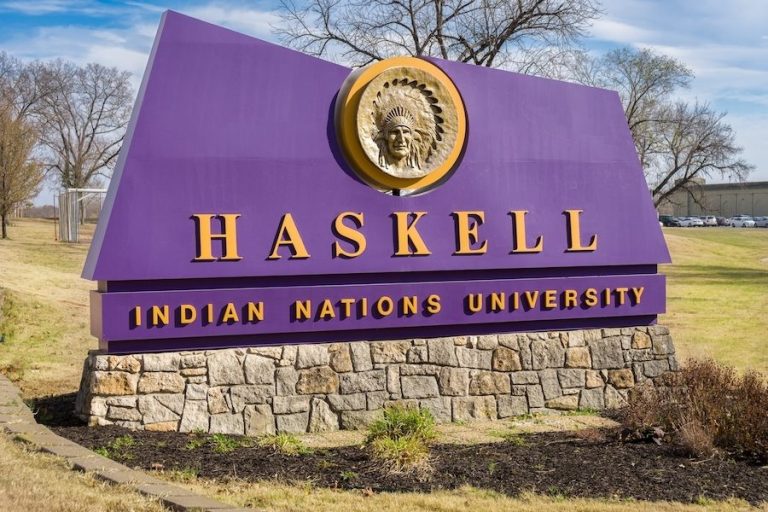How Trump’s Proposed Cuts Could Devastate Tribal Colleges
After losing her mother, sister and brother to diabetes, Joilynn Loves Him decided to study health at Northwest Indian College, a tribal college in Washington.
Her experience at the school “has been life-changing.”
“The teachers make sure we’re successful,” Loves Him said. “They’re really there for students, and they understand that life happens. If I were at a normal Western college, I’m pretty sure I never would’ve made it.”
Such sentiments about tribal colleges are common among students. Tribal colleges and universities are institutions of higher education, chartered by tribes, that aim to meet the educational and cultural needs of Native communities.















